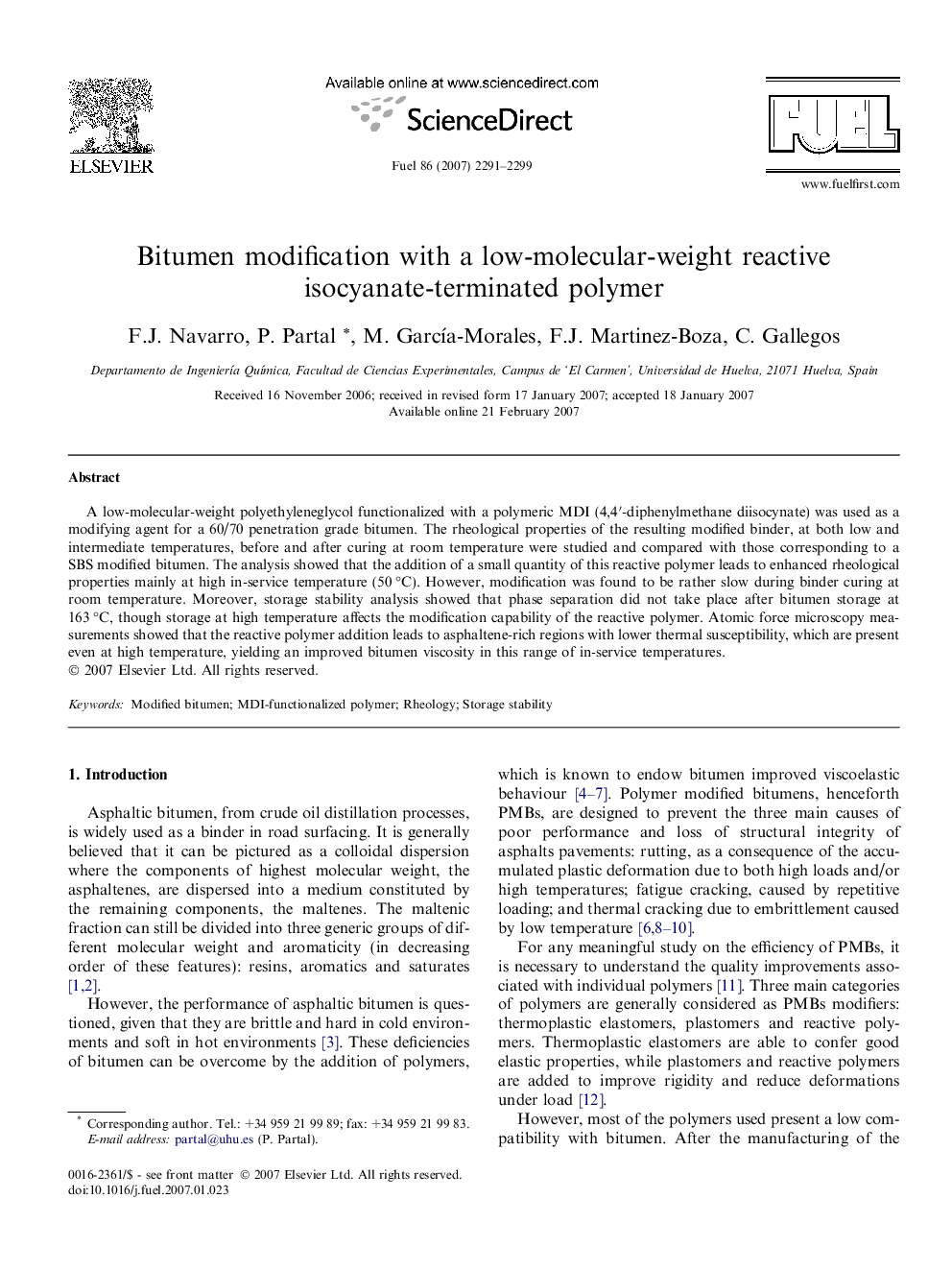| Article ID | Journal | Published Year | Pages | File Type |
|---|---|---|---|---|
| 208195 | Fuel | 2007 | 9 Pages |
A low-molecular-weight polyethyleneglycol functionalized with a polymeric MDI (4,4′-diphenylmethane diisocynate) was used as a modifying agent for a 60/70 penetration grade bitumen. The rheological properties of the resulting modified binder, at both low and intermediate temperatures, before and after curing at room temperature were studied and compared with those corresponding to a SBS modified bitumen. The analysis showed that the addition of a small quantity of this reactive polymer leads to enhanced rheological properties mainly at high in-service temperature (50 °C). However, modification was found to be rather slow during binder curing at room temperature. Moreover, storage stability analysis showed that phase separation did not take place after bitumen storage at 163 °C, though storage at high temperature affects the modification capability of the reactive polymer. Atomic force microscopy measurements showed that the reactive polymer addition leads to asphaltene-rich regions with lower thermal susceptibility, which are present even at high temperature, yielding an improved bitumen viscosity in this range of in-service temperatures.
